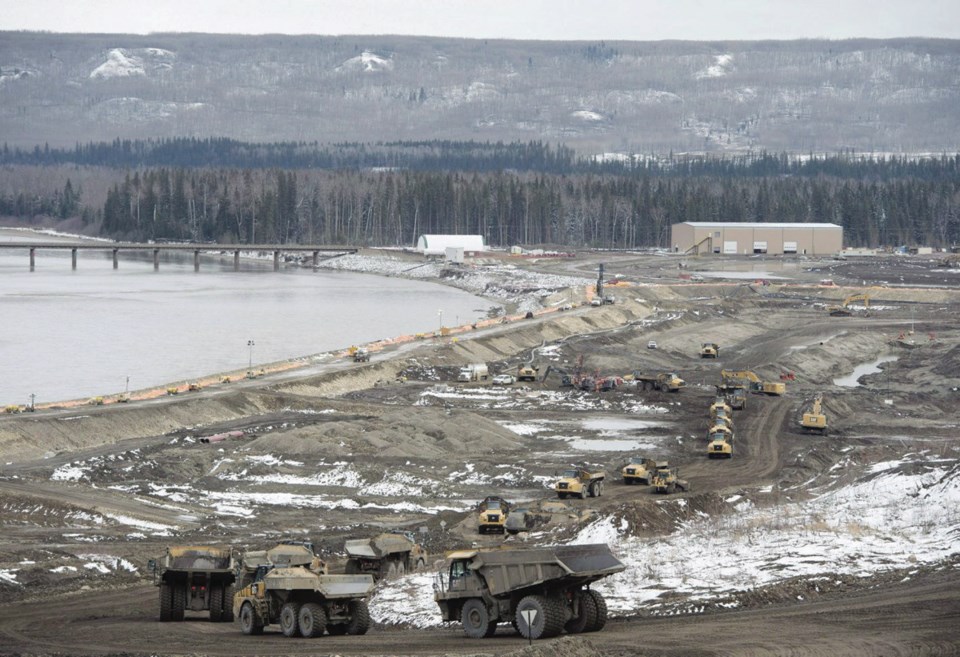No matter what Premier John Horgan decided to do with Site C, there would have been much gnashing of teeth and wringing of hands. But it was always going to move ahead. It was a foregone conclusion.
Start with giving credit where it’s due. Though members of his caucus and cabinet have said otherwise, Horgan consistently said he would refer Site C to the B.C. Utilities Commission, and make his decision from there. And while many squinted between the lines to conjure a clear directive to stop, the BCUC report provided no smoking gun.
So imagine being an NDP strategist right now. Yes, some of your voters are going to be disappointed by moving forward with Site C. According to Angus Reid, almost half of NDP voters wanted it to stop. But where are those voters going to go?
Probably not to the B.C. Liberals, who started this process and have continued to be enthusiastic supporters of Site C. But why would they defect to the Green Party? For all of Andrew Weaver’s Twitter tough talk, he had every opportunity to make cancelling Site C a condition of supporting the NDP government. After all, one of his three conditions was more funding and staffing for himself and his two colleagues through official party status — it’s ridiculous to suggest he couldn’t have included: “Stop Site C.”
Over and above all that, the Green Party is focused on one thing and one thing only — proportional representation. Horgan could introduce a bill legally changing Weaver’s name to “Stephen Harper” and the Greens would vote for it — provided it happens before next year’s referendum. All the sound and fury about Site C and recall campaigns are empty threats, and nobody knows that better than the NDP.
Instead of combing through the BCUC report, to understand why Site C is moving forward, look instead at the government and party that made the call.
For all the talk about the Liberals being a red-and-blue coalition of conservatives and federal liberals, the B.C. NDP are a coalition, as well.
Think of their two wings as brown and green. The green wing is self-explanatory — mostly young and urban people, who tend to look dimly on development in general. The brown wing is more the traditional NDP you grew up with — the blue-collar party of unions and union jobs.
Both sides have their avatars on social media, and much more importantly, in caucus and cabinet. But little by little, the green wing has been asserting control, opposing almost every new project. That’s all well and good, but inevitably caused a rift with the brown wing, which cast itself as the champion of working people — and, therefore, the projects that put them to work.
Some of the cracks started to show before the election, with the Ironworkers’ Union throwing its support to the B.C. Liberals, mostly over the NDP’s stated opposition to two major transportation projects in the Lower Mainland.
So Horgan was faced with having to disappoint one of the two major factions in his party — which wasn’t much of a choice at all.
The NDP rose to power by performing unexpectedly well in urban B.C., but it’s hard to see how much better it can realistically do there. For example, it can’t sweep Burnaby and the Tri-Cities indefinitely.
To have any realistic chance of winning a majority government, the NDP simply must do better in the Interior. Killing Site C, and the resulting anti-jobs, anti-everything labels that would have come with it, would make that much more difficult.
Like most large political parties, the NDP is run by smart people. A large percentage of their voters might tell pollsters they’re disappointed, but it’s unclear how many of them view Site C as a deal-breaker, or if they were willing to swallow 10 to 12 per cent increases in their hydro rates to make it happen.
The utilities commission didn’t tell the NDP what to do with Site C — polls and politics did.
Maclean Kay was former premier Christy Clark’s speechwriter for five years.



